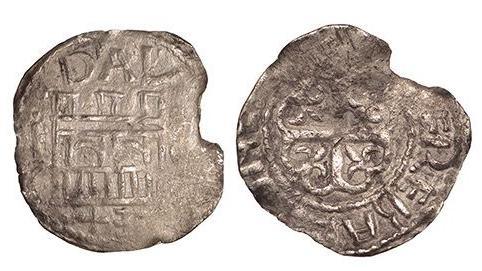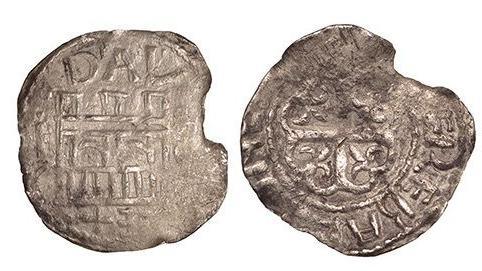Coin without monarch's face sells for £32k

It is believed the coin was minted between 1136 and 1141 on the orders of King David I of Scotland
- Published
A medieval coin dating from when Scotland ruled parts of northern England has sold for £32,000 - far higher than its £20,000 expected price.
The coin was minted in Carlisle, Cumbria, between 1136 and 1141 on the orders of King David I of Scotland, according to Jim Brown, a coin expert at auctioneers Noonans Mayfair in London.
He said he was not too surprised about the price it fetched.
"It is a unique and extremely interesting coin," he said
The identity of the coin's buyer has not been disclosed by the auction house.
'Never been discovered'
Mr Brown previously told the BBC the coin was one of the few minted during the reign of a monarch which does not feature their face, adding: "It's so unexpected."
It depicts a castle on one side and a cross on the other, with a name of the Carlisle mint where it was made.
He said the team can be so sure about when it was minted because the cross design was similar to other coins minted from the area in that time period.
Mr Brown said the castle on the coin was probably Carlisle Castle.
"I can't think of any other reason [to put the castle on the coin] other than [King David] was really happy that he'd actually managed to conquer parts of north-west England and get a city and castle out of it," he said.
Follow BBC Cumbria on X, external, Facebook, external, Nextdoor, external and Instagram, external. Send your story ideas to northeastandcumbria@bbc.co.uk.
More stories from BBC North East and Cumbria
- Published10 September 2024
